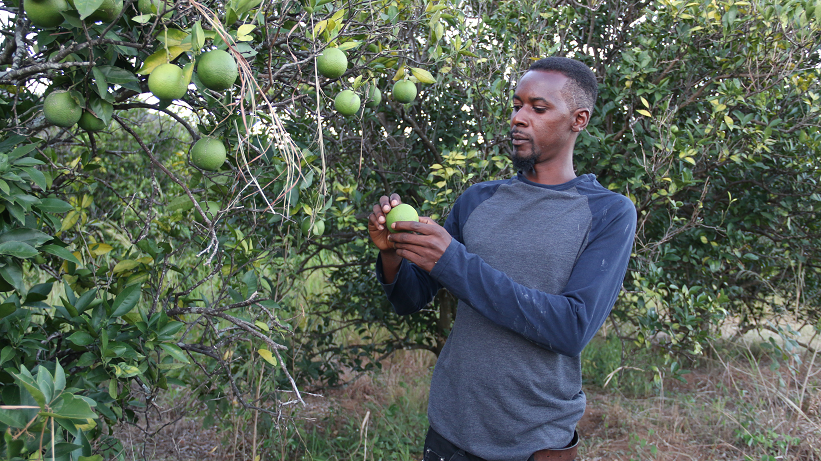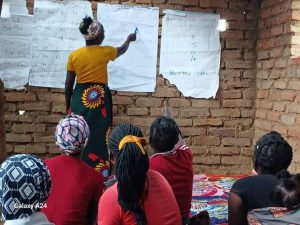By Hope Bwalya
Zambia’s youth population is exceptionally high accounting for 65 percent of 20 million people who are also less than 25 years old.
It is also worth noting that about 4.8 million are aged between 15-35 (36.7 percent of the total population). The country has recorded some demographic progress of a vibrant youthful population owing to the productive age group which is spread across the country.
Like the United Nations Population Fund (UNFPA) rightly puts it, the country is on a right path of realising its demographic dividend by 2030.
In 2022, about 42.86 percent of the country’s total population were aged between 0-14 years.
This meant that the country was having the age group that was mainly dependent despite being youthful.
This makes it difficult for the country to develop especially if the productive age group is inactive or mainly being fended for.
With the current population projections, Zambia should be moving towards the realisation of massive economic growth since there will be increased participation in the economy by young people.
How should the youths participate in the economy?
Although there are a number of positive demographic trends, the onus is on young people to explore economic activities
As the country commemorates Youth Day on the theme: Zambia at 60, ‘be the change,’ a youth in Katete District of Eastern Province has demonstrated that young people can ‘be the change’ and effect the change they want.
Henry Moyo, 33, is a farmer who is very passionate about farming and has lived with it for some time now.
Moyo, a graduate of the Zambia Institute of Chartered Accountants (ZCAS) runs Chizam Farm seated on 111 hectares of land where he practices a mix of horticulture and other forms of agricultural production.
Moyo started the farming business when his father died in 2015, leaving him as the manager, while his immediate elder brother Andrew Moyo as his Assistant Manager and their eldest brother Herbert Moyo as part of management.
The farm in its glory days used to grow 17,000 orange trees in its orchard but due to economic challenges, production dropped to about 3,000 trees covering only 15 hectares.
Moyo explained that despite the challenges that the farm had been facing, he together with his brothers were committed to ensuring that it stayed afloat.
“Our father came to settle here somewhere in 1972, and that’s when he started growing oranges until his demise in 2015. That’s when the children took over farming. We have a total of 3, 600 productive trees but we might only harvest from 1, 000 because we are not able to keep them to an average standard, due to a number of challenges. Per year, on average we harvest about 80 tons, at the moment looking at the way the trees are and what we have been lacking,” he said.
The farm that relies on flooding as a means of irrigation produces Valencia and Washington Navel oranges, vegetables like cabbage and maize. The farm uses one of eight perennial springs dotted around the Mphangwe mountain for its irrigation.
Flood irrigation is one of the first types of irrigation known to man.
The three brothers have ensured that farming is seriously taken as a business, strictly working towards safeguarding that at least the production brings an income.
“On the oranges, annually we make K280,000 then also for tomatoes, we make close to K80,000. Of course, we also do cabbages and vegetables, so far, we make about K40,000,” he said.
Job creation
Besides ensuring that the family is economically sound and the farm stays afloat, the three brothers are supplementing the government’s efforts in creating employment.
Moyo highlighted that currently the farm had eight permanent workers who helped with the farming of the various crops on the estate.
“At the moment we have Eight permanent workers, but we do have seasonal workers who come daily. I would say close to 300 come from the surrounding villages. We usually pay them in terms of fruits, as that is what they prefer. The fruits fetch more money when they go to sell them,” he disclosed.
In every form of business there are challenges which hamper the growth of the undertaking.
Explaining their own challenges, Moyo stated that the closure of Sunquick and Zamhold where the farm used to supply the merchandise has adversely affected their income.This he said, had led to the loss of a ready market for the fruits.
“In the past, when we had Zamhold in Lusaka and Sunquick, we would produce maybe close to 230 tons a year because we had ready market but at the moment, the increase in price of things and closure of Zamhold, we had nowhere to take the fruits so the only market where we are selling is Katete sometimes Chipata and Petauke,” he said.
The continued selling of farm produce on retail basis, access to inputs and modern farming as well as irrigation implements have been the major challenges affecting production.
“Our production has gone low, when we used to sell in bulk, we used to get payment in bulk and it was easy to buy certain things but now when you take the oranges at the market the marketeers are few. Because of the lack of inputs, fertilizers and chemicals we don’t harvest much,” he said.
Future prospects
The farm wishes to expand its production capacity which will trickle down to employment creation for many people close to the farm.
The estate also envisions itself producing enough to supply to the fruit factory, Eastern Tropical Fruit Processing Plant situated within the district.
“Our future plans are to expand this place so that we can create employment for others, also to supply as much as we can for the plant because this plant has come for horticulture growers like us. We want to expand to make this estate valuable,” he said.
Moyo, a ZCAS graduate, while his elder brother is an Automotive engineer and the other one a professional football player disclosed that they chose to follow their father’s footsteps in order to realise his passion for farming.
“There is much we can do here, other than looking for employment. My advice to the youths is not just to focus on white collar jobs; there is a lot you can do in farming, there is money in farming, if you only have an opportunity or have land, land is no longer for the old people only,” he said.
Meanwhile, Katete District Agriculture Coordinator, Kabange Masenga highlighted that the farm has potential to change the economic landscape of the district as it could create more jobs for surrounding communities.
“We see that this enterprise can provide an income not just for the family but as well as employment. And if employment is being provided; you can see that the economy naturally begins to improve. It’s one venture that we as the Ministry of Agriculture are ready and willing to work with and support,” he said.




